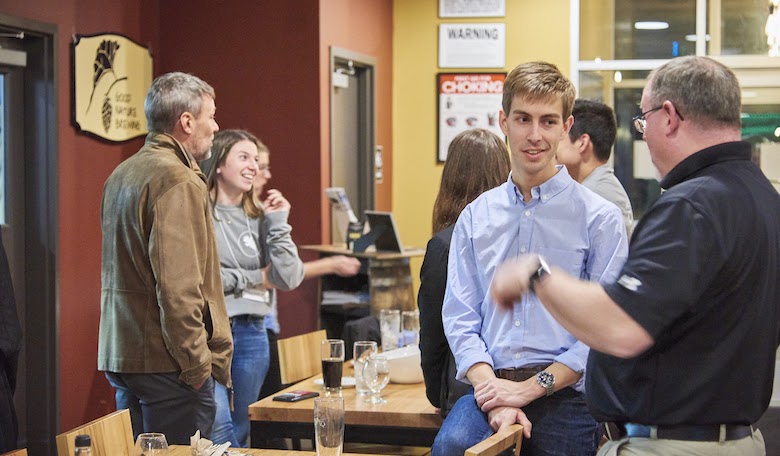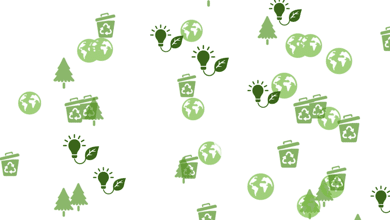Finding the money: four tips to funding sustainability initiatives through the advancement office
This article is a summary of a discussion by AASHE community members who collaborated to host an extended session on advancement at the 2018 AASHE Conference in Pittsburgh (Advancement & Sustainability: Partnering for Fundraising and Alumni Engagement).

Remember when you won $1.6 billion in the lottery and funded your campus’ sustainability efforts for decades to come?
Yeah, me neither. There’s just no silver bullet when it comes to financing sustainability projects, a common problem across many college departments.
In fact, a third of respondents to AASHE’s 2017 Salaries & Status of Sustainability Staff in Higher Education cited a “lack of financial resources or financial security” as one of their biggest challenges (Urbanski, 2017). This means sustainability offices need to explore all their funding options to stay afloat—including working with the college advancement office to secure direct financial support from alumni and other donors.
But how might one go about forming a relationship with university advancement personnel?
To address this question, several AASHE community members collaborated to host an extended session on advancement at the 2018 AASHE Conference in Pittsburgh (Advancement & Sustainability: Partnering for Fundraising and Alumni Engagement). They brought in two campus advancement professionals to share their expertise and answer our questions, providing a solid background on the universe of advancement—including how to approach and engage advancement staff.
For those not able to make it, here are some major takeaways from the event:
- Get to know your advancement team
Advancement departments perform several specialized roles for their institution. Generally, all have areas that serve the following purposes: major gifts, annual giving, stewardship (essentially, ensuring donations are appropriately invested and relationships are lovingly maintained), alumni, and corporate and foundation giving. Advancement departments may also include the campus events office and/or the career services office.
That said, some institutions may centralize this work, while others may separate it out, such as by academic division. Knowing how these roles fit together will help you know who to approach and what their goals are.
- Don’t go rogue
Advancement departments diligently work to maintain relationships with all of an institution’s alumni. You might be thinking about reaching out to an alumnus/a, but your advancement department may already be engaging that person towards a potential gift. Check in with your advancement office before you contact any alumni.
- Remember that development work takes time and energy
Development staff don’t have “bags of money under their desks” for you. Instead, their work is carefully planned out. They put years into building relationships with potential donors to earn a donor’s trust. They document their visits so they can maintain relationships over time. Participating in these visits and contributing to these relationships can help development staff ultimately secure a gift—which can happen two, three, four engagements down the road.
- Make gifts interesting
Generally, donors want their gifts to make a unique difference. They usually don’t want their gifts to support regular operating expenses or items such as recycling bins. Instead, donors are looking for projects to support that will help the institution demonstrate leadership. Thinking about projects around which development staff will be able to engage donors will help you form a partnership with them.
Once again, as with all relationships, it takes time, consistency, and trust to work with your college’s advancement team to create opportunities for donors to support your work. It may not lead to winning the lottery, but you might just create new partnerships to keep sustainability thriving on your campus.
—Alex Davis, former Sustainability Program Manager
As a participant, I’d like to thank the session organizers: Dedee DeLongpré Johnston, Caroline Savage, Elizabeth Swiman, Nina Marie Morris, and Julian Dautremont-Smith. I also wanted to thank the guest experts again for sharing their time and knowledge with us: Kate Redding, Managing Director, Alumni Services, University of Virginia Alumni Association, and Carey Scheide Miller, Vice President of University Advancement, Chatham University.



